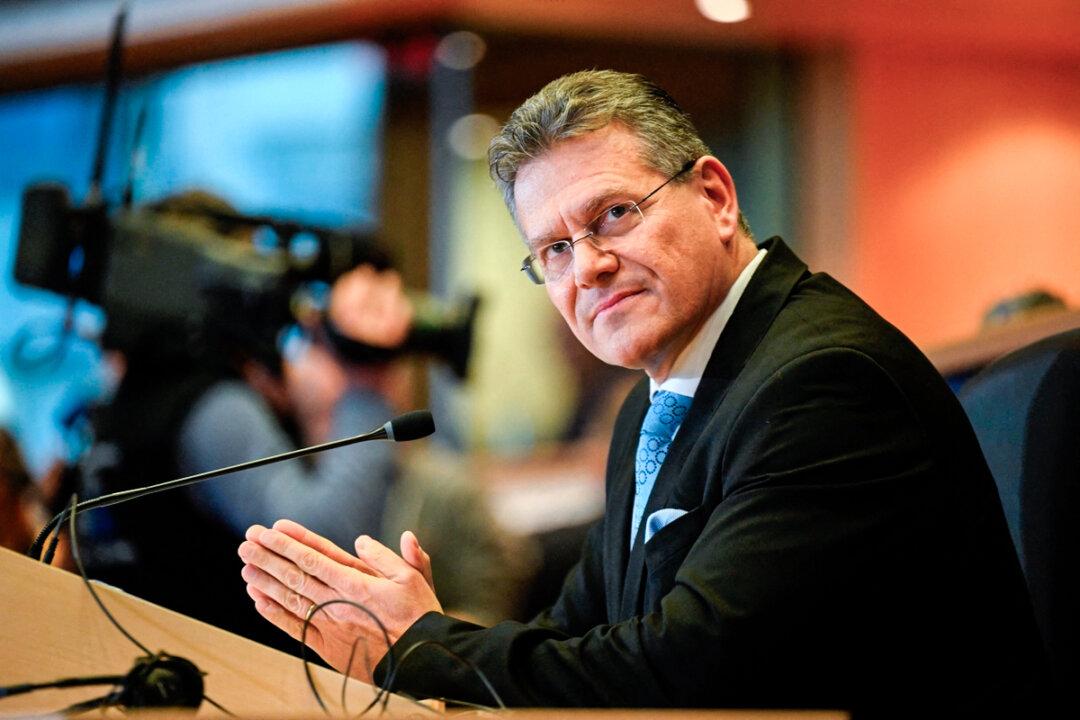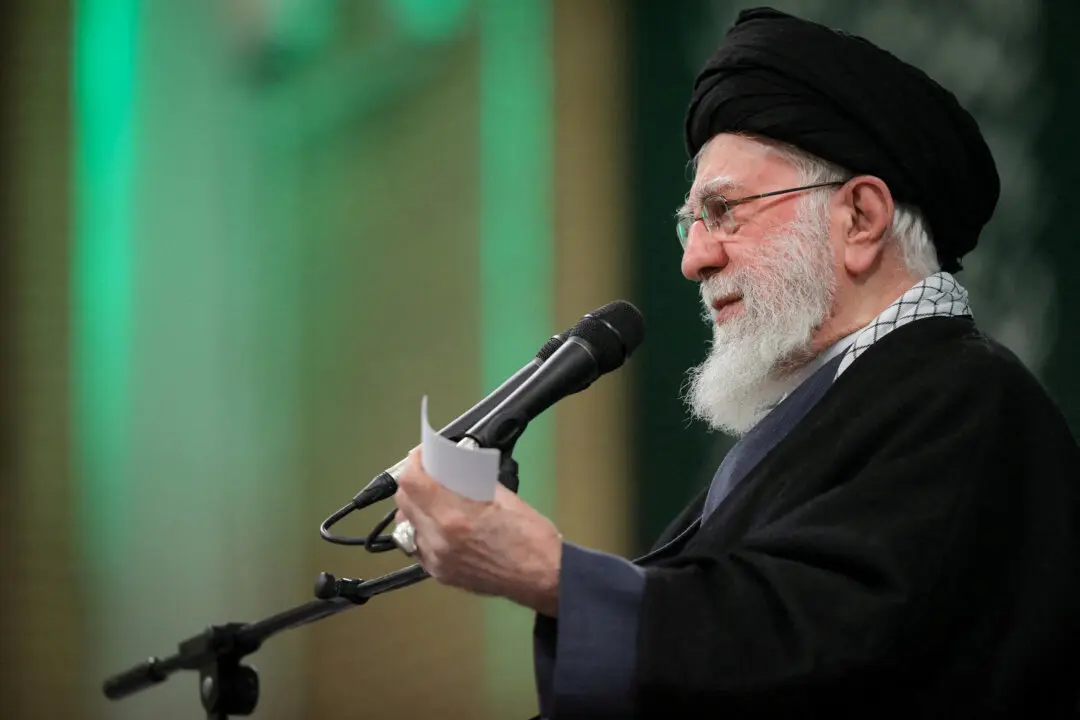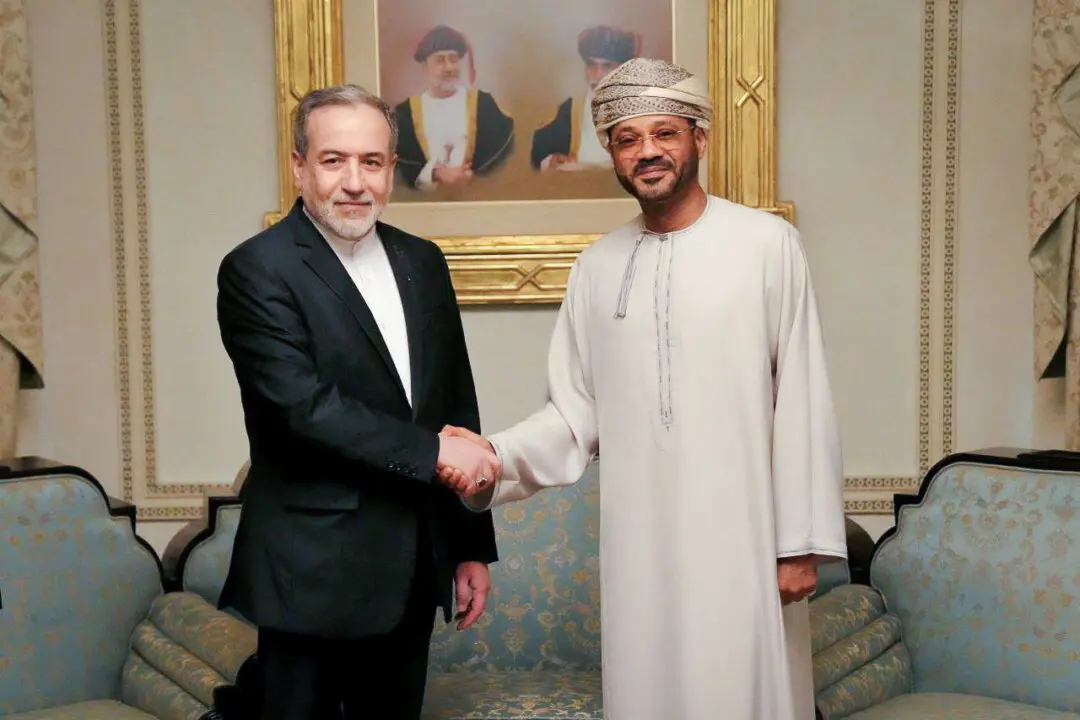European Union Trade Commissioner Maros Sefcovic will travel to Washington over the weekend ahead of talks on tariffs with U.S. officials on Monday, an EU spokesperson said on Friday.
European Commission trade spokesperson Olof Gill confirmed the trip on Irish radio, telling RTE, “The trade commissioner is going to Washington to try and sign deals; that is what we are focused on,” noting that “all options are on the table should that not lead to a good outcome.”





